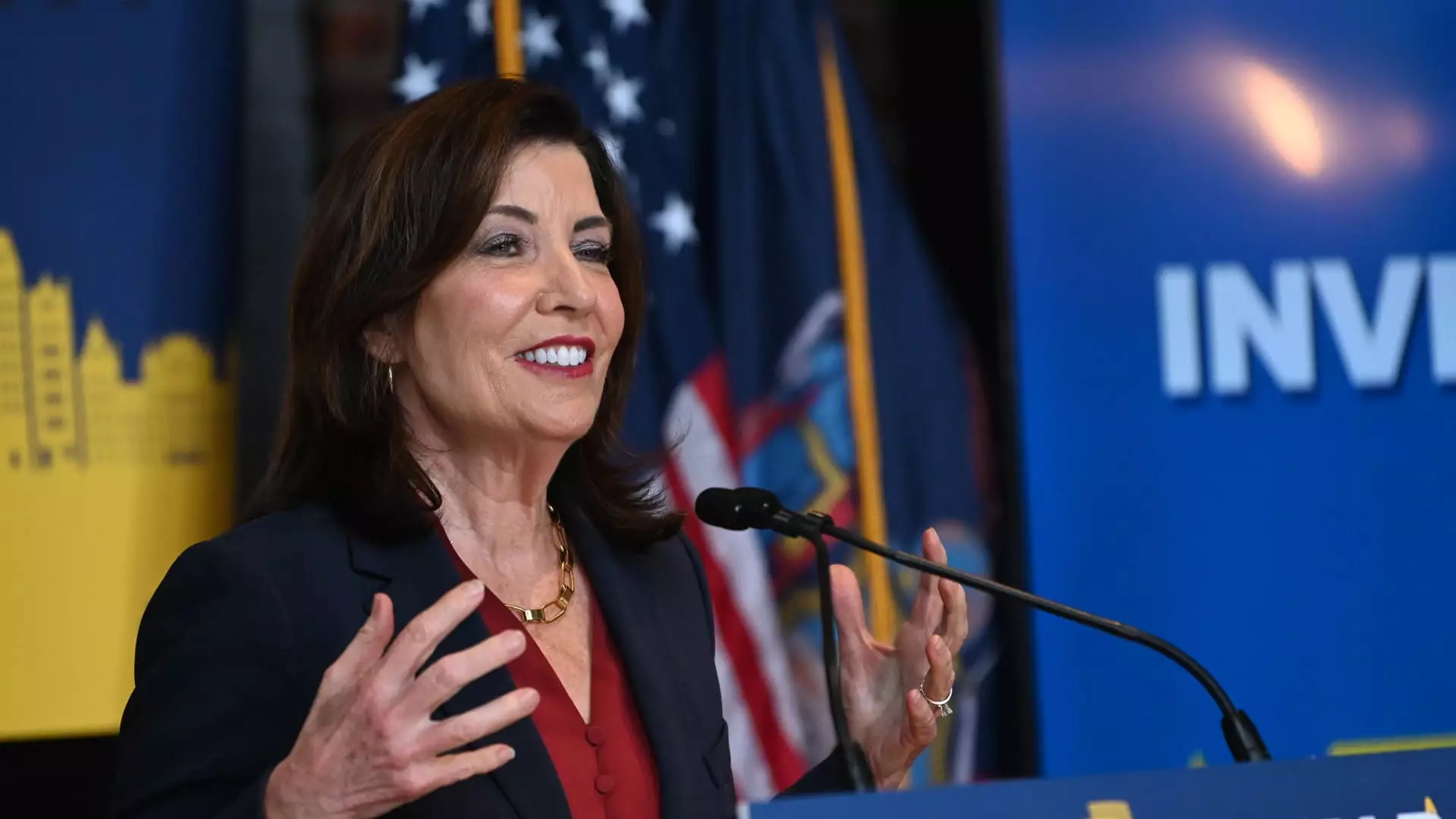In an effort to soften the blow of soaring prices, New York State is distributing its first-ever inflation rebate checks, claiming to cushion residents against the heavy tax burdens driven by inflation. Announced by Governor Kathy Hochul, this initiative is presented as a compassionate response to economic discomfort. But beneath this appealing gesture lies a complex reality that warrants a critical eye—one that questions whether this measure is truly beneficial or simply a political Band-Aid.
This program is undeniably a bold attempt to directly infuse cash into the pockets of over 8 million residents, with payments ranging from $150 to $400. However, it raises the question: Is handing out one-time checks a genuine solution to inflation’s root causes, or does it merely treat the symptoms without addressing the systemic issues? While many see such rebates as necessary relief, they often serve as superficial fixes that distract from deeper, more intractable economic challenges like stagnant wages, rising housing costs, and income inequality.
Potential Short-Term Gains vs. Long-Term Consequences
Skeptics might argue that these rebate checks are advantageous only in appearance. They provide a quick boost, offering momentary comfort—an immediate win—a measure designed more for political optics than sustainable economic health. When residents receive their checks, they might feel temporarily gratified, but the impact on ongoing inflation control remains questionable. The rebates may encourage spending, which, in a high-inflation environment, risks fueling further price rises rather than cooling the economy.
Furthermore, such programs can inadvertently deepen disparities. Although the rebates are targeted based on filing data, their uniform structure ignores the nuanced ways inflation impacts different income groups. Those with more savings or resources might see little real benefit, while the most vulnerable remain trapped in persistent financial stress. This raises concerns about whether the policy genuinely elevates the collective well-being or simply provides a fleeting political respite.
The Political and Economic Implications of Rebate Checks
The decision to distribute these rebates also bears significant political weight. By framing the initiative as a compassionate response, Hochul enhances her appeal among voters battered by inflation. Yet, critics argue that such measures domesticate the urgency of structural economic reforms, which are often politically unpalatable and complex to implement.
On a broader scale, the rebate strategy exemplifies a recurring approach—using temporary financial injections to address issues rooted in broader policy failures. The federal government, and other states, have toyed with similar short-term solutions, but without addressing underlying economic vulnerabilities, these efforts risk becoming ineffective or even counterproductive. For instance, if these checks simply encourage extra spending in a high-price environment, they may inadvertently contribute to further inflationary pressures rather than dampening them.
This mismatch between policy intent and actual economic outcomes underscores a fundamental flaw: superficial fixes overshadow meaningful reform. The government is essentially throwing bandages at symptoms while ignoring the underlying ailment—an economy burdened by structural issues such as affordable housing shortages, wage stagnation, and an overreliance on consumption-driven growth.
The Critical Perspective: Are We Falling for Politically Motivated Ploys?
From a center-wing liberal perspective, these rebates highlight the pitfalls of relying on short-term, individual-focused solutions to deeply systemic problems. While relief is needed, it must be paired with policies that address income inequality, improve living standards, and promote long-term economic stability. Reliance on rebates risks fostering a cycle where government action is reactive rather than proactive—an approach that may temporarily appease voters but ultimately fails to empower communities or alter the structural economic trajectory.
Moreover, the focus on payouts can obscure the pressing need for reforms in tax policy, corporate regulation, and social safety nets. The rebates serve as a symptomatic treatment, but without concurrent efforts to control corporate greed or bolster wages, they risk becoming mere palliatives, providing cosmetic comfort without substantive change.
In essence, this approach reveals a reluctance among policymakers to pursue deeper reforms that could produce truly equitable and resilient economic growth. Instead, the rebate checks function as political tokens—short-lived, easily distributed, and ultimately insufficient. As residents cash their checks, they might feel a fleeting sense of victory, but the underlying economic issues remain unaddressed, leaving the state vulnerable to the continued hardships of inflation and inequality.
While the gesture of distributing inflation rebates may be well-intentioned, it invites deep skepticism. Policy solutions rooted in structural reform, responsible fiscal management, and income redistribution are essential for meaningful change. Temporary measures like these rebates risk merely perpetuating a cycle of reactionary politics and economic superficiality—an approach that ultimately undermines the promise of genuine progress.

